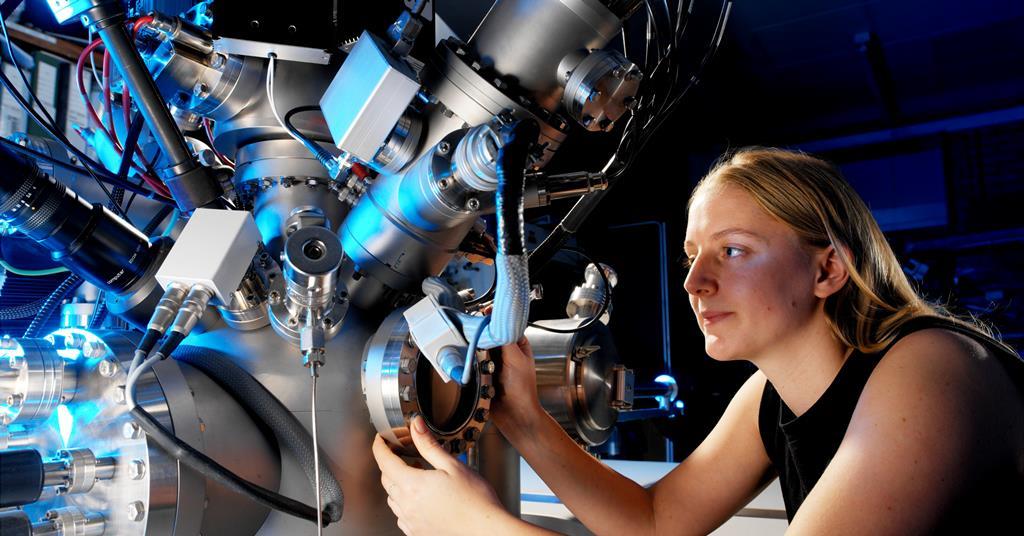Research infrastructure programme delivering for UK higher education

The programme that funds higher education facilities in the UK is performing well, according to an interim report, and is successfully enhancing research infrastructure and fostering strategic partnerships.
The UK Research Partnership Investment Fund (UKRPIF) is a competitive grant scheme to fund new buildings, refurbish existing facilities and purchase high-cost research equipment. The largest scheme managed by Research England, it was established in 2012 and has awarded £1 billion to 59 projects across seven rounds. For every £1 awarded through UKRPIF, universities must attract £2 from other sources. To date, UKRPIF projects have secured commitments of over £2.5 billion of co-investment from industry partners, charitable organisations and philanthropic donors. Areas include cancer research, neuroscience, agriculture, manufacturing and aerospace.
The interim report finds that the fund has enabled higher education providers across the UK to establish top-tier research facilities and centres of excellence; fostered partnerships leading to further investments through grants, donations and industrial contacts; and ‘positively influenced’ research and innovation strategies, environmental sustainability plans and the overall working culture of higher education institutes.
Higher education providers with UKRPIF-funded centres report a substantial growth in research staff: PhD students increased by 79%, postdocs by 48% and senior researchers by 68%, effectively doubling some institutes’ research activity. Research productivity also grew by 84%, while 92% of institutes reported that funding led to the development of new and emerging fields of research. Almost 90% of institutions reported enhanced partnerships with other universities and 64% and 68%, respectively with organisation such as NGOs and charities, and public sector partners. There was a 216% increase in private-sector partnerships.
The report includes several case studies including the Advanced Therapies Centre, a Kings College London project operated in partnership with the Guy’s & St Thomas’ NHS Foundation Trust. The centre has ‘transformed capabilities’ in developing cell and gene therapies for patients with diseases like cancer and diabetes. The funding helped develop facilities for advanced therapy development, testing and manufacturing, and upgrades to the clinical research capabilities. All this happens now within one building. The centre has produced new spinouts such as Quell Therapeutics, which recently signed an agreement with AstraZeneca to develop, manufacture and commercialise engineered cell therapies for autoimmune diseases. Another spinout, Leucid Bio, has recently received approval for a clinical trial for a new cell therapy.
While the team behind the interim report has worked hard to pull together an overall evaluation drawing on multiple studies and methods, it is very difficult to establish real cause-effect relationships with the kinds of methods that have had to be used here, says Kieron Flanagan, a science and technology policy specialist at Alliance Manchester Business School. ‘The evaluation is inevitably heavily dependent on interviews with the recipients of the awards, who have an obvious interest in talking up impacts and benefits. But this is an issue for any such evaluation.’
He concludes that the real question for a programme like this is ‘the opportunity cost’ – could the money have been spent in a different way that would have achieved even greater benefits? He also notes that over half of RPIF investment has gone into the ‘Golden Triangle’ region connected by Oxford, Cambridge and London. ‘This is not a scheme that is shifting the dial on research concentration in the UK.’
A final report is due in early 2028.
Related
Major military infrastructure upgrade completed at Leuchars
Upgraded facilities have been delivered for The Royal Scots Dragoon Guards and 2nd Battalion Royal Electrical and Mechanical Engineers, including refurbished o
UK public EV charge points surpass 75,000 as infrastructure booms
The UK’s electric vehicle (EV) charging infrastructure has hit a significant milestone, with the number of public charge points surpassing 75,000. According t
Infrastructure firm strengthens UK presence with Brierley Hill warehouse |…
National infrastructure service provider MJ Quinn has secured a newly refurbished industrial site in Brierley Hill as part of its ongoing UK ex
UK: Work Begins on New Railway Station in Okehampton
Initial work has begun to build a new railway station in Okehampton, Devon. The new 15 million GBP station, named Okehampton Interchange, will connect We













